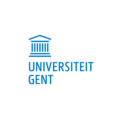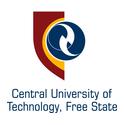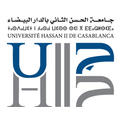In short
This networking project aimed at establishing a durable cooperation with scientists from the University of Ghent, the Central University of Technology (Bloemfontein, South Africa), and the Hassan 1 University at Settat (Morocco). A number of activities related to investigations of health effects and benefits of (traditional medicinal) plants were performed; amongst others, exchanges of scientists for short visits, the scheduling of a new master’s degree on ‘Medicinal Plant Sciences’ in Morocco, and the organisation of an international workshop in Bloemfontein.
Such activities are of great importance for public health as medicinal plants are still very important and actually something of the future, not of the past! For example, natural products are a high-impact source of new “lead-compounds” of new therapeutic agents despite the large development of biotechnology and combinatorial chemistry in drug discovery and development. It is therefore necessary to improve research and knowledge in the field.
Project description
This networking project has brought together scientists from Brussels (Sciensano), Ghent (University of Ghent), Bloemfontein (Central University of Technology, South Africa) and Settat (Hassan I University, Morocco). New research collaborations on medicinal plants were initiated, i.e. studies on the potential hazardous and beneficial properties (genotoxicity & antigenotoxicity) of medical plants and on problems related to their investigation. Furthermore, existing collaborations with other partners from Africa were continued and possibilities for future collaborations were investigated.
Read more about the NATHERAP project
Although NATHERAP was not a research project ‘as such’, research was an integral part of the project, as master thesis students working on related subjects were hosted with different partners of the consortium. Specific attention was paid to investigate changing properties of medicinal plants according to the location where they grow. As an example, we investigated the genotoxicity and antigenotoxicity of extracts from Nigella sativum, a Mediterranean plant which is very important in the Muslim world and to which many (beneficial) properties are attributed. At Sciensano, extracts were tested from plants harvested at Arfoud (South-East), Settat (Centre) and Fkih Ben Salah (Middle Atlas). Antigenotoxic properties clearly differed depending on the place where they were they were cultivated. Other properties of this plant were investigated at the university in Morocco.
Short visits of scientists to the different laboratories were also included in the project. Furthermore, we contributed to the establishment of a new master’s degree on ‘Medicinal Plant Sciences’ in Morocco. Such a degree is considered very important because of the many problems with self-declared traditional healers in Morocco and the need for regulations and a science-based herbal medicine. Finally, an international workshop on ‘medicinal plant research’ was organised in Bloemfontein.
Added value at scientific level
NATHERAP significantly contributes to the medicinal plant research domain through the development of more effective testing strategies, protocols and guidelines.
Added value for public health
Within the project, natural products with a potential added value for public health have been identified. These natural products can be used to isolate/identify new molecule with therapeutic value (e.g. as a food additive or as an ingredient of anti-cancer drugs).
Sciensano's project investigator(s):
Service(s) working on this project
Partners






